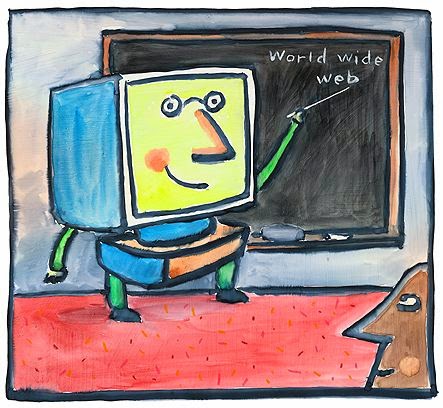Popular Posts
-
Tweet
-
Watch the Did-You-Know slideshow
-
Writing Simplified: How and When to Use Parentheses : Parentheses are most commonly seen these days as the lower half of emoticons. They'...
-
Onlineteaching Maths and English: PRIME NUMBERS WORKSHEET : PRIME NUMBERS WORKSHEET Prime Numbers 1 ‐ 20 Worksheet Is 10 a prime numbe...
-
How to Rapidly Improve Speaking Skills
-
MATHEMATICIANS CONTRIBUTIONS: MODULE 7 - LEONHARD PAUL EULER (1707 – 1783) : LEONHARD PAUL EULER (1707 – 1783) FATHER OF TOPOLOGY ...
SLIDE SHARE WIDGET
Saturday, June 27, 2015
Friday, June 26, 2015
Writing Simplified: How and When to Use Parentheses
Writing Simplified: How and When to Use Parentheses: Parentheses are most commonly seen these days as the lower half of emoticons. They're good for much more than just being the smile in...
Wednesday, June 24, 2015
TAMIL DOWNLOADS: LEARN TAMIL
TAMIL DOWNLOADS: LEARN TAMIL: I Naan He Avan She Aval You Nee It Athu A Oru Come Vaa Came / Vanthuttan(male)/vanthutta(female)...
Tuesday, June 23, 2015
Wednesday, June 17, 2015
Basic English Grammar - Noun, Verb, Adjective, Adverb
41 English phonetics - The sounds of English - ESL Spoken English lesson...
Tuesday, June 16, 2015
Onlineteaching Maths and English: PRIME NUMBERS WORKSHEET
Onlineteaching Maths and English: PRIME NUMBERS WORKSHEET: PRIME NUMBERS WORKSHEET Prime Numbers 1 ‐ 20 Worksheet Is 10 a prime number? Is 8 a prime number? ___________ ___________ ...
Sunday, June 14, 2015
Prepositions - English Prepositions - Learn English Grammar
Monday, June 8, 2015
Saturday, June 6, 2015
CHARACTERISTICS OF THE TACTILE/KINESTHETIC LEARNER
CHARACTERISTICS OF THE
TACTILE/KINESTHETIC LEARNER
- Learns
best when physically engaged in a "hands on" activity
- In
the classroom, benefits from a lab setting where he/she can manipulate
materials to learn new information
- Learns
best when he/she can be physically active in the learning environment
- Benefits
from instructors who encourage in-class demonstrations, "hands
on" student learning experiences, and fieldwork outside the classroom
- Bears
down extremely hard with pencil or pen when writing
- Often
enjoys working with tools
- Remembers
best by writing things down several times
- Often
plays with coins or keys in pockets
- May
chew gum, smoke, or snack during studies
- Learns
spelling by "finger spelling" the words
- Often
is good at working and solving jigsaw puzzles and mazes
- Often
doesn't like to read directions, would rather just do it
- Learns
best when shown how to do something and then have the opportunity to do it
- Often
prefers not to study at a desk
- Thinks
better when given freedom to move around
- While
trying to think of a specific word, uses hands a lot and calls something a
"what-cha-ma-call-it" or a "thing-a-ma-jig"
- Often
needs frequent breaks during studying
- Usually
not skilled in giving verbal explanations or directions
Subscribe to:
Posts (Atom)

